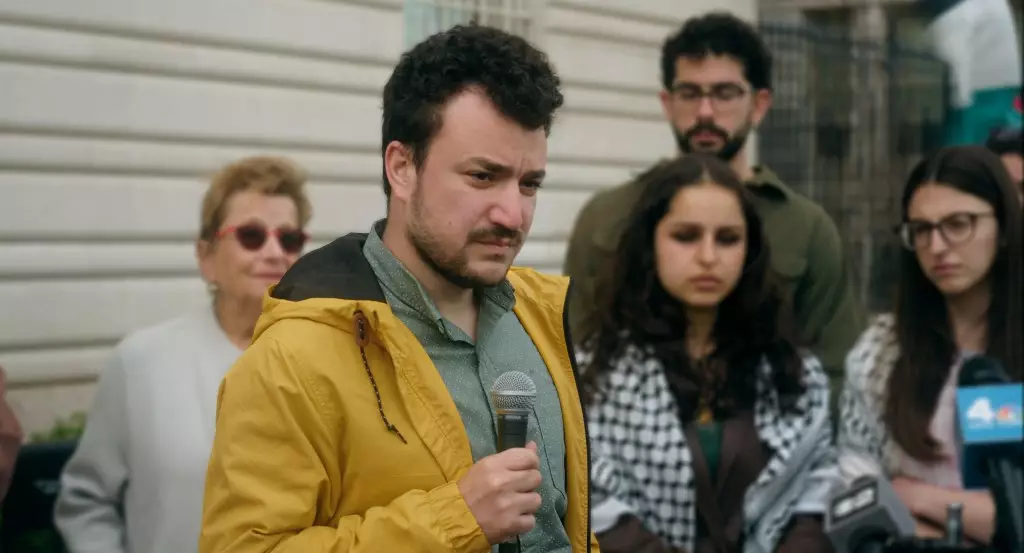In an era where social movements are gaining unprecedented visibility, “The Encampments” has emerged as a trailblazer. With an astonishing per-screen average opening of over $80,000, it has reportedly achieved the highest earning for a documentary film. Grounded in real events, the film centers on students at Columbia University who spearheaded a protest movement against the war in Gaza in 2024. The impactful nature of its subject matter has resonated deeply with audiences, as evidenced by the sold-out screenings at the Angelika Film Center in New York. Such impressive box office performance signifies not just commercial success but also an urgent social consciousness that demands attention.
A Timely Release Amid Crisis
Watermelon Pictures’ decision to fast-track the film’s release seems prescient in light of the ongoing socio-political climate. The timely themes presented in “The Encampments” not only reflect the immediate realities faced by many activists today but also touch on broader issues regarding international relations and human rights. The documentary features Mahmoud Khalil, a graduate student and activist who has taken center stage in the protests. His harrowing experiences—especially his arrest by ICE agents and subsequent detention in Louisiana—underline the very stakes that activists are contending with. This personal narrative adds a deeply human element to a story that could easily veer into abstraction, compelling viewers to engage with the issues on a more visceral level.
Grassroots Activism at Its Best
Justin DiPietro, Executive Vice President of Watermelon Pictures, emphasizes the significance of grassroots efforts in the film’s success. The demonstration of community support is nothing short of inspiring, showcasing the power of collective action. With a notable executive producer like Macklemore involved, this documentary is a product of not just financial backing but also a genuine understanding of the times. DiPietro’s assertion that “this film matters and people are ready for it” captures the essence of shifting public sentiment toward activism, particularly among younger generations who are actively seeking ways to engage and effect change.
Documentaries as Agents of Change
“The Encampments” exemplifies a growing trend in documentary filmmaking where art intersects with activism. Viewers aren’t merely passive recipients of information; they are motivated to reflect and act upon what they witness on screen. The film stands not just as an artistic endeavor but also as a platform for social change—fostering discussions and mobilizing action around critical issues that demand urgent attention.
The film industry’s role as an agent of transformation is highlighted by the documentary “October 8,” which has exceeded $1 million in box office receipts by shedding light on the rise of anti-Semitism in the U.S. after the recent Hamas attack on Israel. This film, along with “No Other Land,” showcases how timely narratives can resonate powerfully with audiences, imbuing historical context into contemporary struggles. It’s evident that there’s a hunger for stories that do more than entertain—they educate, provoke thought, and inspire action.
Emerging Voices in Documentary Filmmaking
The diverse range of recent documentary releases indicates a burgeoning platform for various voices in cinema. Not only does “The Encampments” pave the way for grassroots activism in film, but it also highlights the importance of inclusivity in storytelling. Given that the filmmakers behind “No Other Land” include both Palestinian and Israeli voices, it serves as a potent reminder that comprehensive narratives are vital in combating stereotypes and fostering understanding between conflicting perspectives.
As these powerful stories find their way to the screens, they showcase an increasing recognition of the importance of authenticity. Films like “Janis Ian: Breaking Silence,” which chronicles the storied career of the singer-songwriter and LGBTQ activist, remind audiences of the rich histories that shape contemporary dialogues. This trend signals a shift toward giving a platform to underrepresented communities, ultimately enriching the tapestry of documentary filmmaking.
The Future of Documentary Filmmaking
With films like “The Encampments” leading the charge, the landscape of documentary filmmaking is on the verge of transformation. In a climate that requires timeliness and relevance, filmmakers are compelled not merely to document reality but also to challenge it. This shift towards activism within the medium makes documentaries an essential tool for educating audiences and mobilizing them toward change. As we embrace this new wave of storytelling, it becomes increasingly clear that the intersection of art and activism is not just a fleeting trend, but a movement poised to have lasting impacts on society.
